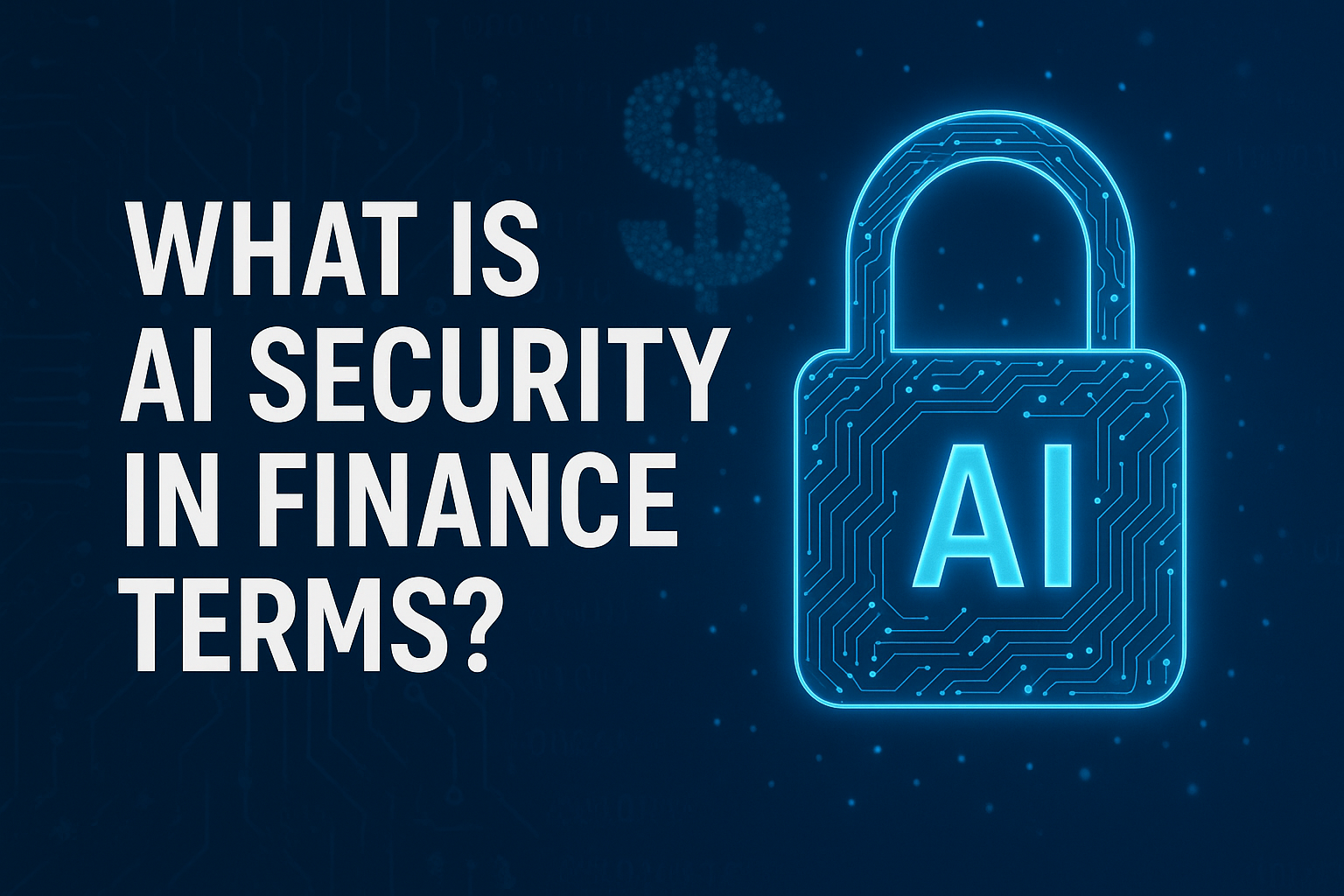
If you’re running a fintech startup, managing a digital lending platform, or leading innovation at a financial institution, you’ve probably asked yourself: “How do we keep our systems secure?”
It’s a critical question—and for good reason.
As technology becomes the backbone of financial services—from online transactions to digital wallets—the security risks multiply exponentially. Hence, a new age of security approach is required to combat rising cyber threats.
AI security has become the best option for firms operating in the finance domain that offers enhanced security for your organization, helping you ensure complete security, from fraud detection to risk prevention.
A compromised system doesn’t just affect your technology; it can impact customer funds, regulatory compliance, and your entire business reputation.
But here’s what many founders and CTOs don’t realize: AI security in finance isn’t just about preventing hackers from breaking into your systems. It’s about identifying and preventing threats in real-time before they hit your organization.
This comprehensive guide is designed for decision-makers, business leaders, and CTOs to help them understand the significance of AI security to help them secure their assets and data.
What Is AI Security in Finance?
AI security in finance refers to the use of artificial intelligence technologies to protect financial systems, data, and users from cyber threats. It involves AI-driven tools and machine learning models that can:
- Detect anomalies in real time
- Identify fraud patterns before human analysts can
- Monitor user behavior for suspicious activity
- Automate incident response and risk assessment
- Strengthen compliance and data governance
Put simply, AI security acts as a digital watchdog, continuously learning and adapting to prevent breaches before they occur.
How Is AI Used to Strengthen Financial Security?
Fraud Detection & Prevention
Banks and fintech platforms now use AI algorithms to detect fraud in real time. These systems analyze large volumes of transaction data to identify irregularities that may indicate unauthorized access or manipulation.
For instance, if someone tries to access an account from an unusual location or makes a high-value transaction after months of inactivity, AI flags it instantly.
Behavioral Biometrics & Identity Verification
AI can analyze typing speed, device usage patterns, and even mouse movements to verify user identity. This form of passive authentication is harder for fraudsters to replicate compared to traditional passwords or OTPs.
- AI conversational bots also now include identity verification layers during customer interactions, ensuring security and convenience in one interface. Check out our AI Conversational Bot solutions that blend security with user experience.
Threat Intelligence and Real-Time Monitoring
Traditional systems react to known threats. AI security models, on the other hand, can predict new types of cyberattacks by identifying patterns in malware behavior or analyzing network traffic anomalies.
AI-powered generative models can even simulate attacks to test vulnerabilities, forming the basis of secure-by-design systems. Our Generative AI PoC Services help enterprises pilot such solutions before scaling.
AI-Powered Regulatory Compliance
Financial institutions are subject to strict regulations around customer data, KYC (Know Your Customer), and AML (Anti-Money Laundering). AI systems help automate compliance checks, generate audit trails, and monitor for potential breaches — all in real-time.
To ensure fairness and transparency in AI systems, companies also turn to AI audit services. Learn how our AI Audit Services can strengthen your compliance framework.
Key Benefits of AI Security in Finance
- Speed: Instant threat detection and response
- Accuracy: Reduces false positives and manual investigation errors
- Scalability: Monitors millions of transactions simultaneously
- Adaptability: Learns from new patterns to prevent emerging threats
- Cost-Efficiency: Reduces reliance on large human analyst teams
Who’s Using AI Security in Finance?
Leading global banks, insurance companies, and fintechs are investing in enterprise LLM solutions and AI-based cybersecurity tools to protect their infrastructure.
Whether it’s AI-powered identity verification during onboarding or autonomous systems monitoring global transaction networks, the financial sector is rapidly integrating AI into its security DNA.
Security isn’t just about keeping threats out. It’s also about building trustworthy AI that behaves ethically, doesn’t introduce new risks, and meets regulatory standards.
Before implementing AI security systems, ensure you follow a well-structured roadmap. Our Trustworthy AI PoC Checklist can guide your implementation process with confidence.
What Makes AI Security Different?
AI has become like a super-smart security guard for financial companies—one that never sleeps and can spot trouble from miles away. Think about it: while traditional security systems wait for something bad to happen, AI is constantly watching patterns, learning what normal looks like, and catching suspicious activity before it becomes a real problem.
It’s scanning thousands of transactions per second, flagging weird login attempts, and even detecting when someone’s trying to trick the system with fake documents. For fintech startups and banks alike, AI isn’t just making security faster—it’s making it smarter.
Instead of relying on basic rules like “flag all transactions over $10,000,” AI understands context, recognizes unusual behavior for each individual customer, and can even predict potential fraud before it happens. The best part? It gets better over time, learning from every attack attempt and becoming more accurate at protecting both the business and its customers’ money.
The Three Pillars of AI Security in Finance:
- Data Security
Protecting the information your AI learns from—customer data, transaction histories, market information.
- Model Security
Safeguarding the AI algorithms themselves from manipulation, theft, or misuse.
- Output Security
Ensuring the decisions your AI makes are accurate, fair, and haven’t been compromised
Final Thoughts
AI security in finance isn’t just a futuristic concept — it’s happening now. As threats grow more complex, traditional rule-based systems are no longer enough. AI brings speed, scale, and intelligence to the fight, giving financial organizations the tools they need to stay ahead.
Ready to take the next step? Whether you need help building secure AI systems or launching a proof of concept, our experts at AIVeda are here to help. Learn more about our Artificial Intelligence Services or explore our AI Agent solutions built for real-time financial protection.